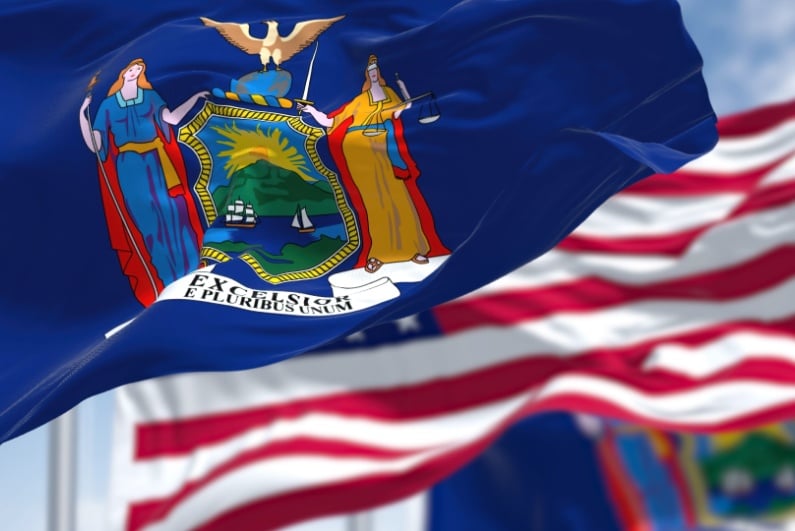Over the past few months, bookmakers in the UK have been on the receiving end of a series of attacks, not least from the UK government and its threats to reduce the maximum stake on Fixed Odds Betting Terminals (FOBTs) in betting shops from £100 to as little as £2. The bookmakers claim that this will damage both town centers and the viability of UK horseracing, a sport heavily dependent on bookmakers’ sponsorship.
The bookies haven’t fared any better with their online operations, with two of them receiving hefty fines for failing to protect vulnerable gamblers, and real problems looming over the implementation of GDPR later this month.
Two days ago we wrote about bookmakers’ use of artificial intelligence to harvest data on customers and to keep them “hooked.” It is worth repeating the views of Labour MP Carolyn Harris, whom we quoted in that article: “The [gambling] industry is geared to get people addicted to something that will cause immense harm. Not just to society, but to individuals and their families. They are parasitical leeches and I make no apology for saying that.” She added: “I never cease to be amazed at how low the gambling industry is prepared to go to exploit those who have shown an interest in gambling.”
While the threat of a Labour government may have receded somewhat after last night’s local election results, there are plenty of politicians and legislators who share Ms. Harris’ views, overtly or covertly.
The case for the defense
Unsurprisingly, the bookmakers have published a rebuttal of the arguments for reducing the maximum stake on FBOTs, which includes arguments about the key role they play in town centers. Their report is called “Too Much at Stake” and, in the interests of balance, it is worth outlining the key points of their argument.
- Retail in general—The bookmakers claim that 6m people visit betting shops every year, thereby providing a “vital stimulus” for the retail sector at a time when more and more people are shopping online. According to research from ESA Retail, 89% of people use a trip to the betting shop as a chance to visit other retail outlets.
- Bookmakers’ shops are essential to the health of town centers—The bookmakers claim that a reduction in the maximum stake could see up to 4,500 shops in the UK close, “leaving high streets with more empty shops, less footfall, and a drop in rental income.” Betting shops have been part of the high street for six decades, say the bookies, and a reduction to £2 will “destroy retail betting.”
- The loss of jobs—Betting shops in the UK employ over 52,000 people, “more than the rest of the gambling industry combined.” The bookmakers estimate that a cut to £2 will cause more than 21,000 people to lose their jobs.
- Tax revenue—Betting shops make a substantial contribution to the local and national economy, generating over £1bn in taxes, including £80m in business rates. Cutting the maximum stake on FBOTs to £2 would “slash” tax receipts by £1.1bn over the next three years, “depriving our public services of vital funding.”
- The economy—According to the bookmakers’ report, the government’s own impact assessment shows that a £2 stake for FOBTs could result in the economy taking an £8.5bn hit over the next ten years.
- The impact on horseracing—Again it comes down to jobs, and the implied threat that a cut in the maximum stake on FOBTs would lead to less bookmaker support for horseracing – a sport which supports 85,000 jobs across the UK and contributes £3.45bn to the national economy.
Some unscientific research
Those are the bookies’ six key arguments, and it seemed only right that I should test them for myself. So I did my research: There are three bookmakers within a five-minute walk of my office and I went into all of them this morning. William Hill had five people in the shop, of whom two were playing on FBOTs. Coral had a solitary customer, oblivious to anything but the roulette machine he was playing. Betfred fared better – seven customers, with four of them playing FBOTs. So, a total of 13 customers, with more than half of them playing on FBOTs. So yes, you can see the argument that FBOTs are essential to the betting shops.
I struggle though, with the idea that betting shops are essential to the town. With the greatest possible respect, none of the 13 customers I saw this morning looked likely to launch a shopping blitz on Next or M&S. I also doubt that any of them of them were gambling anything like the £100 maximum permitted stake. Tales of gamblers losing £15,000 a day on FBOTs are undoubtedly accurate, but they are the stories that make the headlines. My wholly unscientific research makes me wonder if the reduction in the maximum stake would have the effect we’re led to believe. What is undeniable, though, is that FBOTs and their guaranteed profit margins account for perhaps 50% of betting shop profits. No wonder the bookmakers are protesting.
But it strikes me that the problem with betting shops runs far deeper than the maximum stake on FBOTs. Like candle-makers and knife-grinders, maybe betting shops are simply an idea whose time has passed, as the millennial generation, the demographic the bookmakers are chasing, moves inexorably online. The average age of the betting shop customers in my wholly unscientific survey? At least 65, which is about as far from a millennial as you can get.




